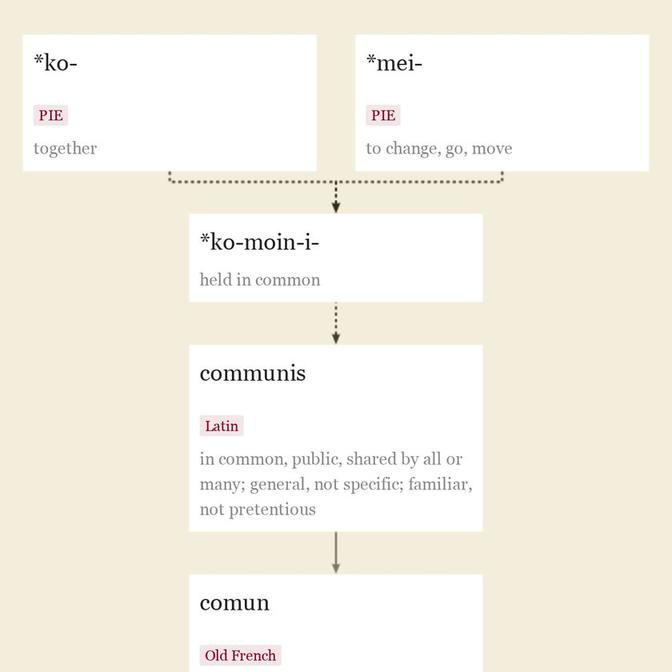uncommon adj.
1540s, "
Entries linking to uncommon
prefix of negation, Old English un-, from Proto-Germanic *un- (source also of Old Saxon, Old Frisian, Old High German, German un-, Gothic un-, Dutch on-), from PIE *n- (source of Sanskrit a-, an- "
The most prolific of English prefixes, freely and widely used in Old English, where it forms more than 1,000 compounds. It underwent a mass extinction in early Middle English, but emerged with renewed vigor 16c. to form compounds with native and imported words. It disputes with Latin-derived cognate in- (1) the right to form the negation of certain words (indigestable/undigestable, etc.), and though both might be deployed in cooperation to indicate shades of meaning (unfamous/infamous), typically they are not.
It also makes words from phrases (such as uncalled-for, c. 1600; undreamed-of, 1630s; uncome-at-able, 1690s; unputdownable, 1947, of a book; un-in-one-breath-utterable, Ben Jonson; etc., but the habit is not restricted to un-; such as put-up-able-with, 1812). As a prefix in telegramese to replace not and save the cost of a word, it is attested by 1936.

c. 1300, "
The second element of the compound also is the source of Latin munia "
Used disparagingly of women and criminals since c. 1300. Meaning "
Common pleas is 13c., from Anglo-French communs plets, hearing civil actions by one subject against another as opposed to pleas of the crown. Common prayer is that done in public in unity with other worshipers; contrasted with private prayer. Common stock is attested from 1888. Common speech (late 14c.) is the vernacular, as opposed to Latin. Common good (late 14c.) translates Latin bonum publicum "
updated on September 27, 2012